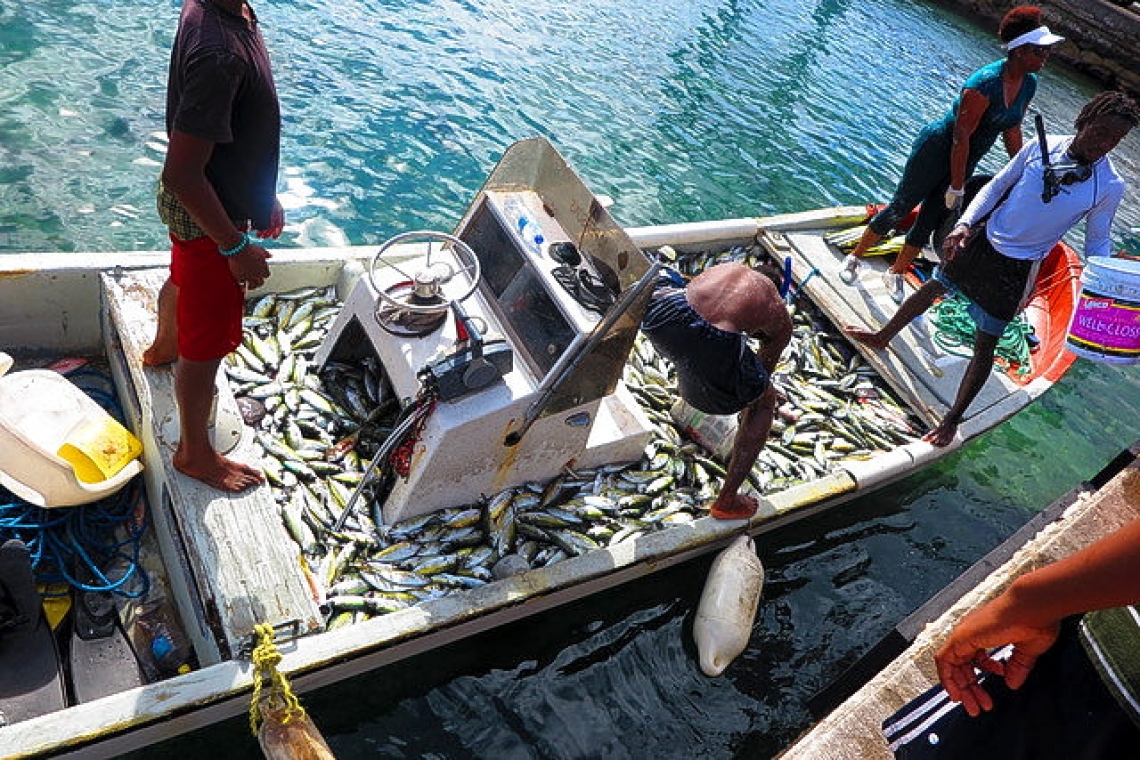A means of existence under threat.
BONAIRE--A 2019 policy brief was just released, outlining requirements for sustainably managing fisheries within the Caribbean Netherlands. Using five different studies, a four-phase roadmap was created to bring local stakeholders and government legislators together to secure the future of local fish stocks.
Without action, a collapse of important fish species could be right around the corner, stated the Dutch Caribbean Nature Alliance (DCNA).
“Maintaining healthy coral reef and fish populations is fundamental in sustaining both the traditional way of life and ever-increasing tourism throughout the Caribbean. Although fisheries within this region are better managed today than they were in previous decades, the Caribbean is still facing an overall decrease in fish stocks.
“Managing the remaining fish populations requires balancing local cultural traditions with the reality of today's environmental conditions. Therefore, this must be a collaborative effort between residents, local and national governments, NGOs and buyers.”
According to the release, to better define the challenges and needs of local fisheries five different studies were conducted on historical fisheries, market analyses, communication and awareness, social mapping and co-management. The goal was to provide insight into how these local fisheries can be improved and sustained for years to come.
Although the final outcome of two of these studies are not yet available, preliminary results have been released to support the upcoming Sustainable Fisheries Plan by the Dutch Ministry of Agriculture, Nature and Food Quality LNV. Mac & Field consultants, in collaboration with World Wildlife Fund (WWF) NL, used these to produce a policy brief to help in the creation of the Sustainable Fisheries Plan.
A common finding throughout each of these studies was that sustainable fishing practices are mostly lacking throughout the Caribbean Netherlands. This has led to an overexploitation or full exploitation of almost all commercial fish stocks.
Although the Ministry of LNV is responsible for fisheries management, implementation and regulation is not possible without the support from all stakeholders. This requires that enough resources are dedicated to this process (e.g. fisheries staff and budget within the local public entities) and open communication between stakeholders providing a feedback loop to meet the evolving needs of each island.
“Emphasising a co-management approach ensures the unique needs and desires of local stakeholders are considered in the design and implementation of a Sustainable Fisheries Management Plan. Fishermen must be included throughout each step of this process to maximise the likelihood that these regulations are implemented and complied with. Furthermore, new and non-traditional fishing activities (such as foreign fishing operations) should be considered within the management plan as well,” added DCNA.
“If left unmanaged, a collapse of certain local fish species is likely. As fish stocks continue to decrease, local and foreign demand continues to increase while coral reefs essential for healthy fisheries continue to decline. By working together, a truly Sustainable Fisheries Management Plan can and should be created and implemented ensuring fish stocks are available to local fishermen for many years to come.”







